Bloating
Struggling with bloating? Here’s what you need to know to find relief.
ALL TEST ARE ACCREDITED & REGULATED BY



What is bloating?
When you’re bloated, your stomach or abdomen can feel full and uncomfortable, or even painful.
This bloating happens when your gastrointestinal tract contains too much gas or air. Bloating can be mild, or more severe, and may present as:
– A visibly distended or swollen abdomen
– Feeling very full and uncomfortable
– Feeling of tightness in the abdomen
– Excess gas – belching and/or flatulence
– Rumbling or gurgling
There are several causes of bloating, so it’s important to diagnose the cause of your bloating and find out why it’s happening to you.

Why does bloating happen?
Prolonged periods of bloating could indicate an underlying health problem, if so you should see your GP.
Possible causes can include:
Irritable bowel syndrome (IBS diagnosis)
Ulcerative colitis, a form of inflammatory bowel disease (IBD), where the inner lining of the large bowel is inflamed and develops ulcers
Crohn’s disease, the other form of IBD, where some parts of your colon are inflamed
Too much bacteria in your small intestine (called small intestinal bacterial overgrowth, or SIBO)
Gastroesophageal reflux disease
Food intolerances, especially lactose or fructose intolerance
Producing too much gas (dysbiosis and fermentation)
Weight gain
Stress or anxiety
Delays in your food and drink moving on from your stomach (called gastroparesis)
Eating too quickly, so that you swallow too much air (called aerophagia)

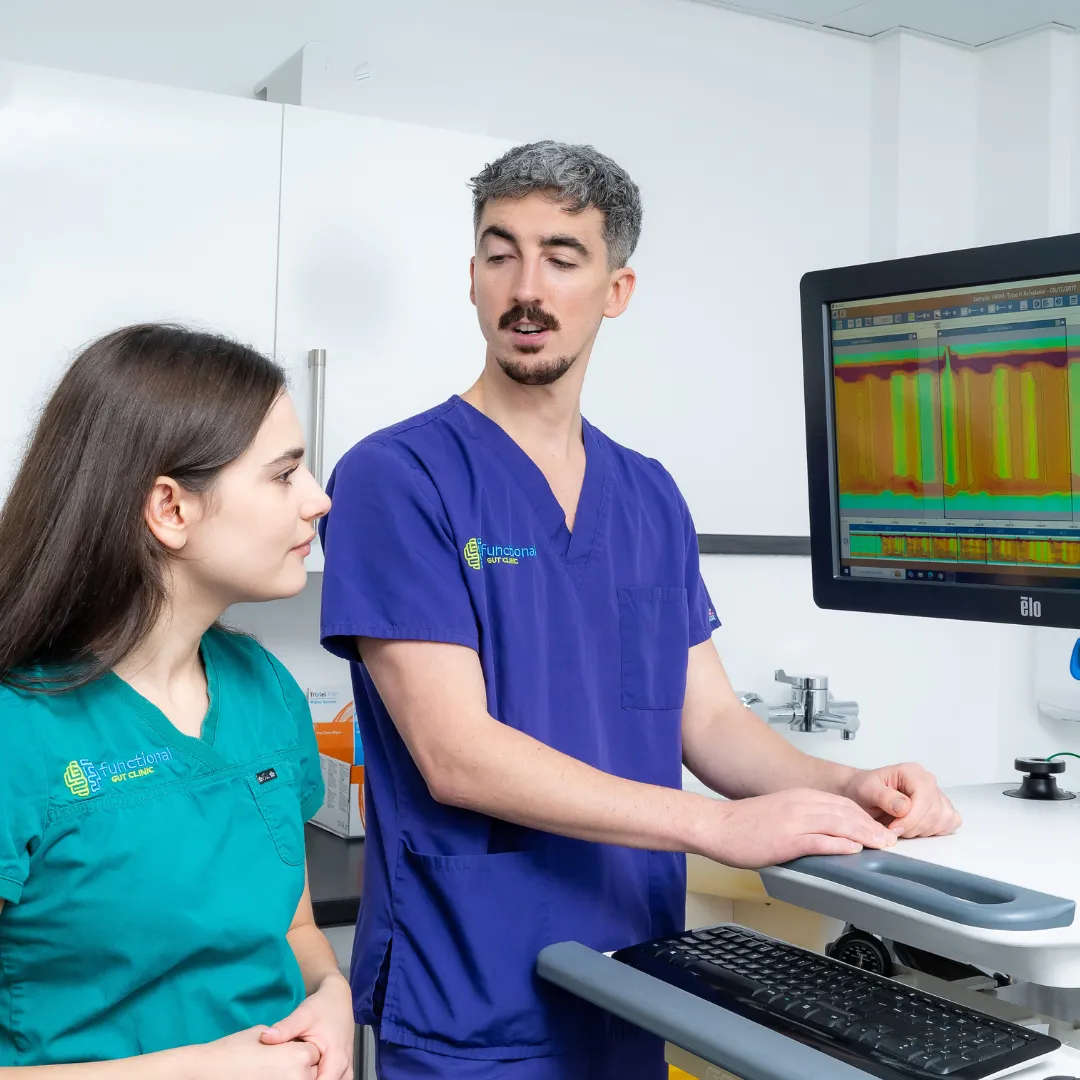
Diagnosing bloating
Feeling bloated is no fun, but once you know what’s going on you can start to manage your symptoms and the underlying causes.
Testing options:
At the Functional Gut Clinic, we can run the following tests to diagnose the causes of bloating:
Gastric emptying test– which measures how quickly food leaves your stomach
Carbohydrate malabsorption breath test– which finds out if you have certain food intolerances (lactose or fructose)
Small intestinal bacterial overgrowth (SIBO) breath test– which finds out if you have an overgrowth of bacteria in your small intestine (called SIBO)
Oesophageal manometry– which measures the function of your oesophagus (food pipe)
24-hour pH impedance monitoring– which looks at whether you have any reflux
Colonic transit study-a non-invasive test which looks at how long it takes for faeces to pass through your bowl
Learn more about bloating
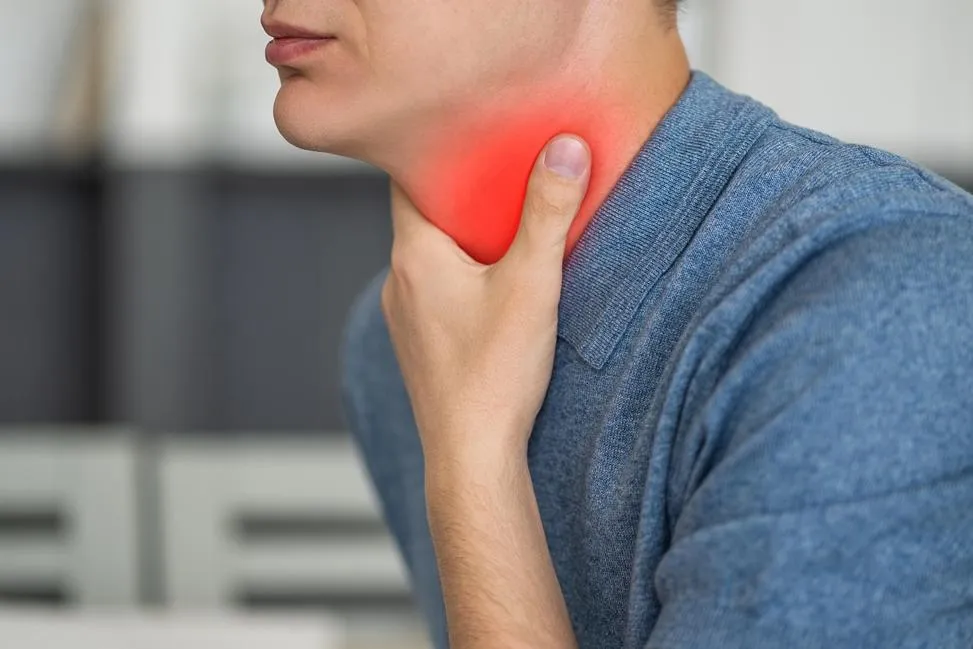
Dysphagia: Signs and Symptoms
An inability to swallow can be extremely uncomfortable and concerning. People might complain about difficulty swallowing liquids or solids, leading to a person coughing or even choking. The medical term for this condition is dysphagia.
It’s estimated that around 1 in 25 people will experience dysphagia during their lives. While it doesn’t always indicate a medical condition – it can resolve on its own – it is often linked to acid reflux, heartburn, oesophagitis, and most worrying, oesophageal cancer.
What is Dysphagia?
Dysphagia simply means difficulty swallowing. It could be difficulty swallowing liquids or foods. However, this doesn’t narrow down why you might have trouble swallowing.
Swallowing is a complex process. Most of us do it every day without thinking. But it involves multiple different organs, from the tongue, throat, and oesophagus to the nervous system and brain. If there’s a problem with any of these areas, you can have an inability to swallow.
Due to this complexity, dysphagia is usually split into two categories:
Oropharyngeal dysphagia occurs somewhere between the mouth and the throat. Often, it’s indicative of a neurological condition like stroke or Parkinson’s disease, although some conditions may cause blockages in this region.
Oesophageal dysphagia involves the food pipe (oesophagus). Here, the most common cause is gastroesophageal reflux disease (GERD). The presence of acid irritates the oesophagus, causing swelling, discomfort, and inflammation. Food may feel like it gets stuck.
Dysphagia Signs and Symptoms
Inability to swallow doesn’t always present the same way. You might think that it’d be immediately obvious. However, it’s the associated signs and symptoms of dysphagia that can help your doctor pinpoint the cause.
Common signs and symptoms of dysphagia include:
Coughing or choking when eating or drinking
Sensation of food sticking in the throat or chest
Pain when swallowing (odynophagia)
Drooling or poor saliva control
Regurgitation of food
Hoarse voice after eating or drinking
Frequent chest infections or aspiration pneumonia
Unexplained weight loss
Avoidance of certain foods or meals
Prolonged mealtimes
Many of these symptoms are linked to GERD. For example, hoarseness occurs after acid irritates and inflames the vocal cords, food gets stuck in the throat due to oesophagitis, and frequent chest infections are the result of constant regurgitation of stomach acid.
On the other hand, symptoms such as drooling, poor saliva control or prolonged mealtimes are more indicative of oropharyngeal dysphagia – most likely a neurological disorder.
Understanding the Types of Dysphagia
As mentioned, dysphagia is divided into two primary types – oropharyngeal and oesophageal dysphagia. Understanding both types in greater detail helps us to identify the underlying cause and bring symptomatic relief.
Oropharyngeal Dysphagia
In this type, the person struggles with chewing and swallowing food. Usually, a person chews the food, mixing it with saliva to form a bolus. The tongue then pushes the bolus into the throat, the epiglottis folds down to cover the larynx (voice box), and the muscles contract to push the bolus into the oesophagus.
Problems with this stage are either neurological or obstructive. Neurological difficulties prevent the above actions from working together in concert. Instead, the person has great difficulty chewing or swallowing.
The associated symptoms include:
Choking, coughing, drooling, or food coming out through the nose
Hoarseness or changes in voice
Difficulty swallowing liquids
Trouble chewing, such as from dry mouth or neuromuscular conditions
Oesophageal Dysphagia
When the food passes into the oesophagus, it’s normally a quick journey into the stomach. The oesophagus is a muscular tube that moves the bolus down by a process known as peristalsis. Between the oesophagus and stomach is the lower oesophageal sphincter (LOS), which opens and closes involuntarily, allowing food and fluids to enter the stomach but not leave.
Some people can have neurological issues affecting peristalsis (especially if there’s a brainstem issue). However, the most common cause by far is GERD, which frequently leads to episodes of heartburn. If GERD persists, oesophagitis can lead to permanent scarring of the oesophagus, leading to strictures or eventually cancer. All of which are also causes of dysphagia.
The associated symptoms include:
Sensation of food sticking in the throat or chest
Trouble swallowing solids only (e.g., due to an oesophageal stricture)
Difficulty swallowing both solids and liquids (e.g. in conditions like achalasia)
Diagnosing Your Dysphagia
Dealing with dysphagia symptoms is unpleasant. You need to understand what’s behind your symptoms to receive immediate treatment. Most of the causes aren’t serious but can become so if left untreated.
Learning more about GERD and Acid Reflux is critical, as this is the most common cause. People affected by GERD often struggle with heartburn, hoarse voice, chronic coughs, and dysphagia symptoms.
Check out our helpful guide if you have difficulty swallowing and consider undergoing the right testing. The Functional Gut Clinic is here to help.
Hear from people we’ve helped, just like you.
"Very professional while welcoming and friendly"
"The manner and demeanour of all staff from reception to people carrying out the test was very professional but welcoming and friendly. Atmosphere is very relaxed and all instructions clear and concise."
London Patient

"Highly recommend this"
"Thanks to Dr Hobson and everyone at the Functional Gut Clinic. The whole team is very kind and generous and they are doing things that are cutting edge and they actually get results."
Manchester Patient

"Highly recommend this"
"After stopping my lansoprazole, every time I had a warm drink, I could feel it burn all the way down to my stomach. Thank you to Sam for making me feel at ease." - Manchester Patient

"My experience could not be better"
"Pleasant and knowledgeable staff that made the experience more enjoyable than it should be!" - London Patient

"Very friendly and knowledgeable"
"An excellent service from beginning to end. I would recommend to anyone who was considering having testing done. Very friendly and knowledgeable!" - Manchester Patient

"Very kind and helpful"
"It was also great to have time to talk to the clinicians – very important when you have problems. Reception staff also very kind and helpful." - Manchester Patient

Are you experiencing any other symptoms
Symptoms are often closely connected. Find out more below.
Reflux

Burning mid-chest, worse when bending or lying down
Constipation
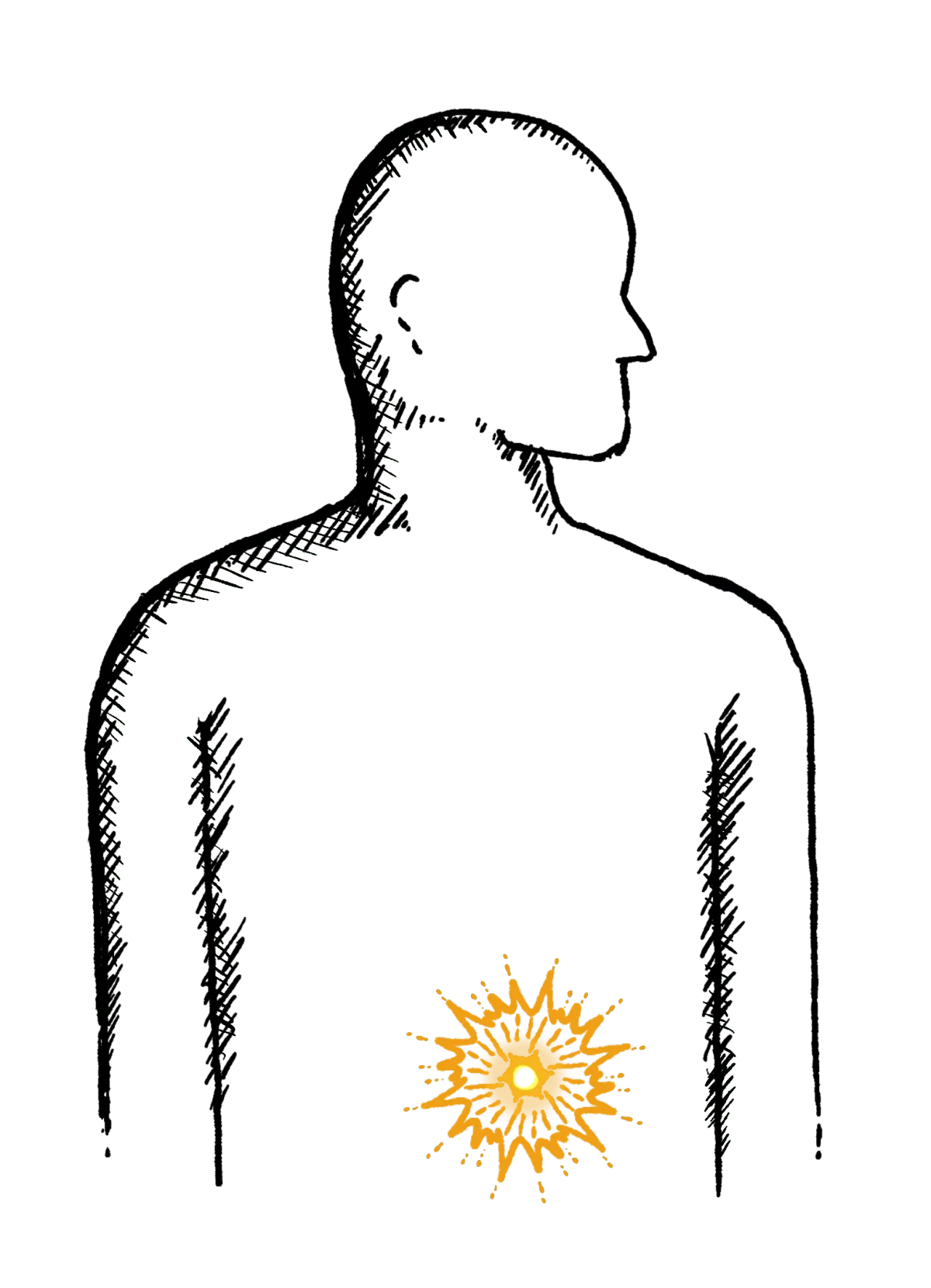
Difficulty going to the toilet, unusual stools, often with stomach ache or intestinal cramps, bloating, nausea or appetite loss
Heartburn

A burning pain in your chest, just behind your breastbone.
The pain is often worse after eating...
Regurgitation
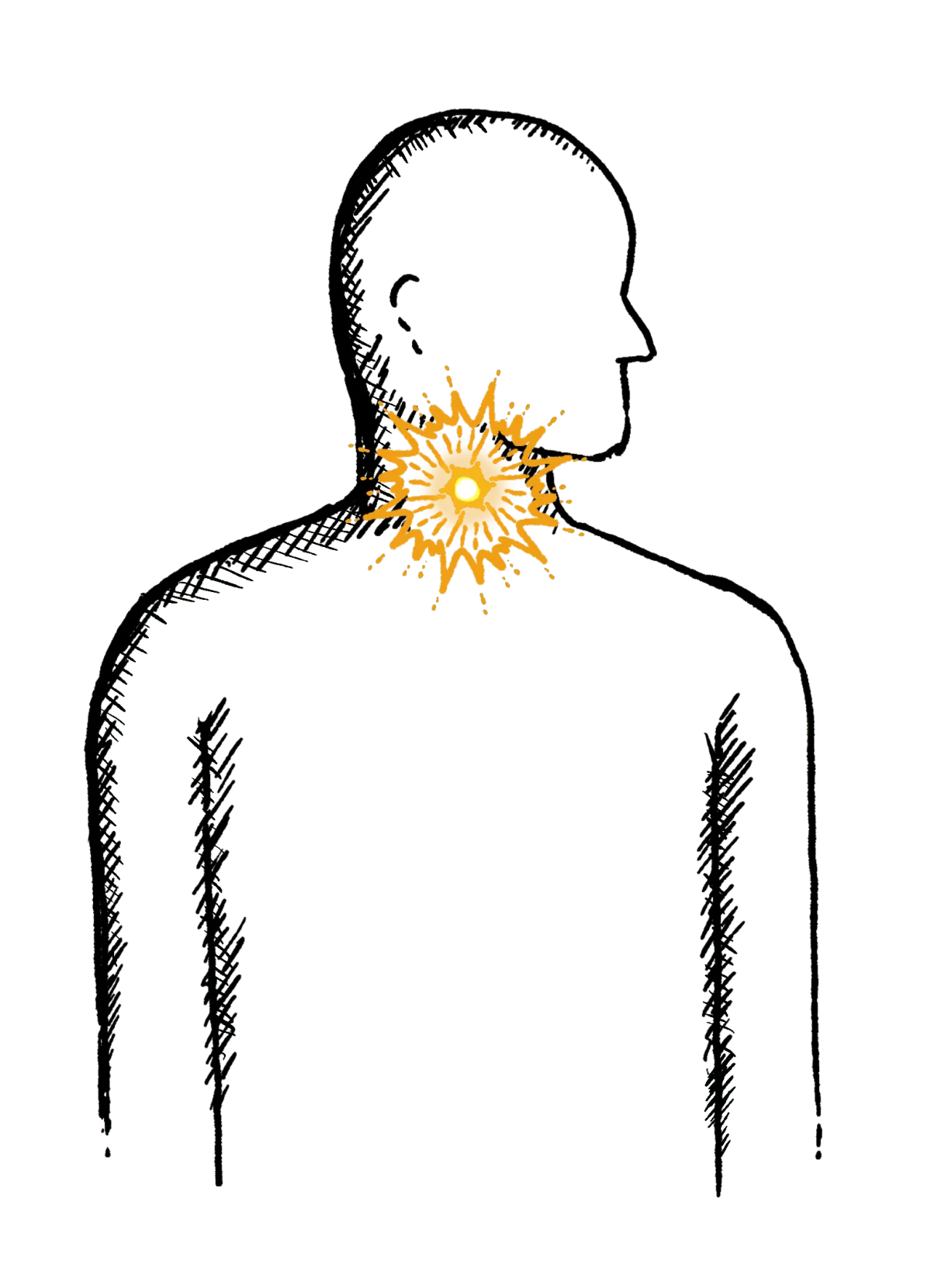
Bringing food or drink back up, difficulty swallowing, feeling that food or drink is stuck in your throat, horrible taste in your mouth
Swallowing Issues

Dysphagia - difficulty swallowing, feeling that food or drink is stuck in your throat, horrible taste in your mouth
Diarrhoea
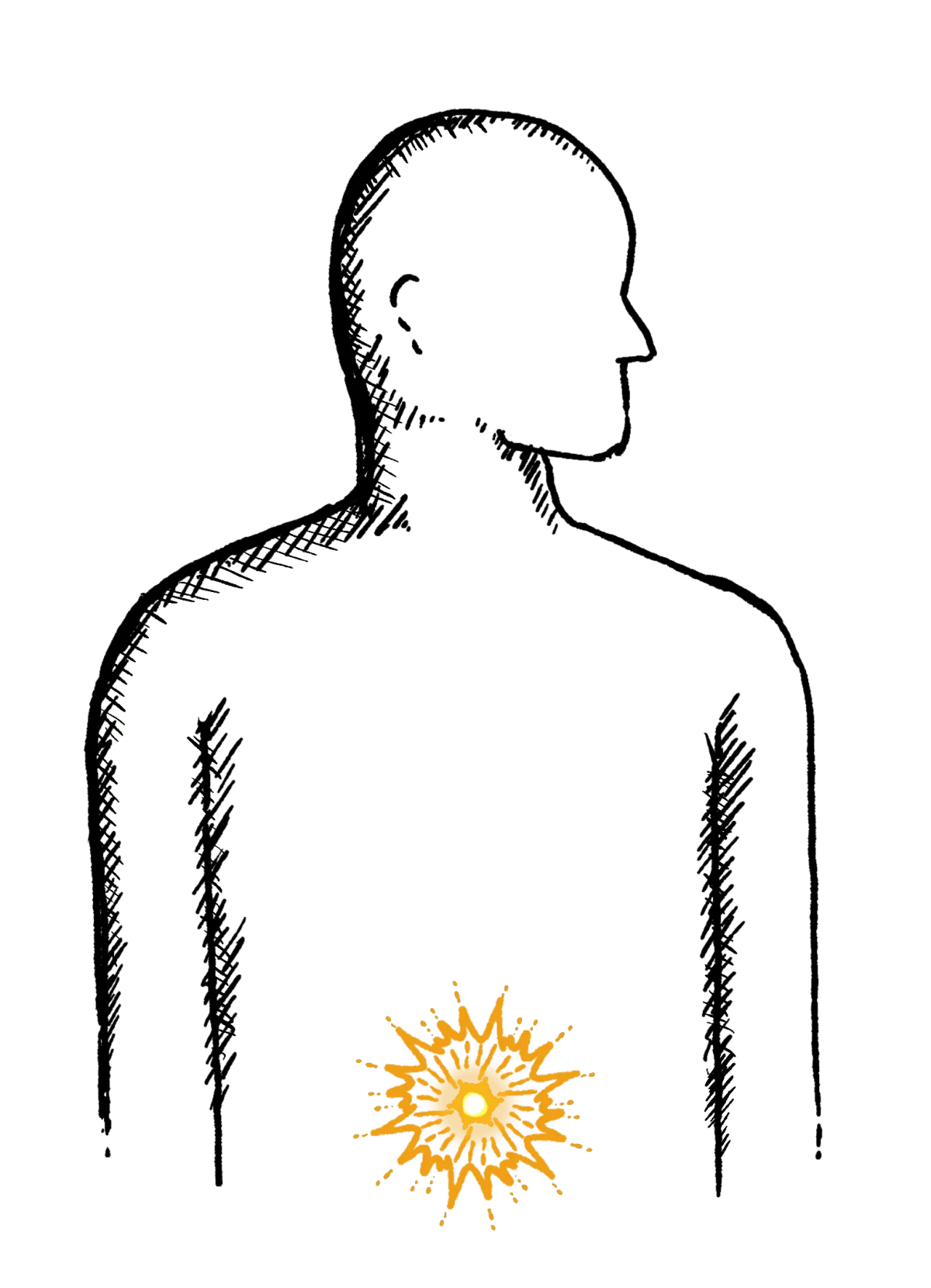
Loose or explosive stools, can’t get to a toilet in time
Abdominal Pain

Cramps; sharp or dull pain, Bloating, Excessive belching, Nausea or vomiting
Faecal Incontinence

Stools leak unexpectedly, Can’t get to a toilet in time
IBS
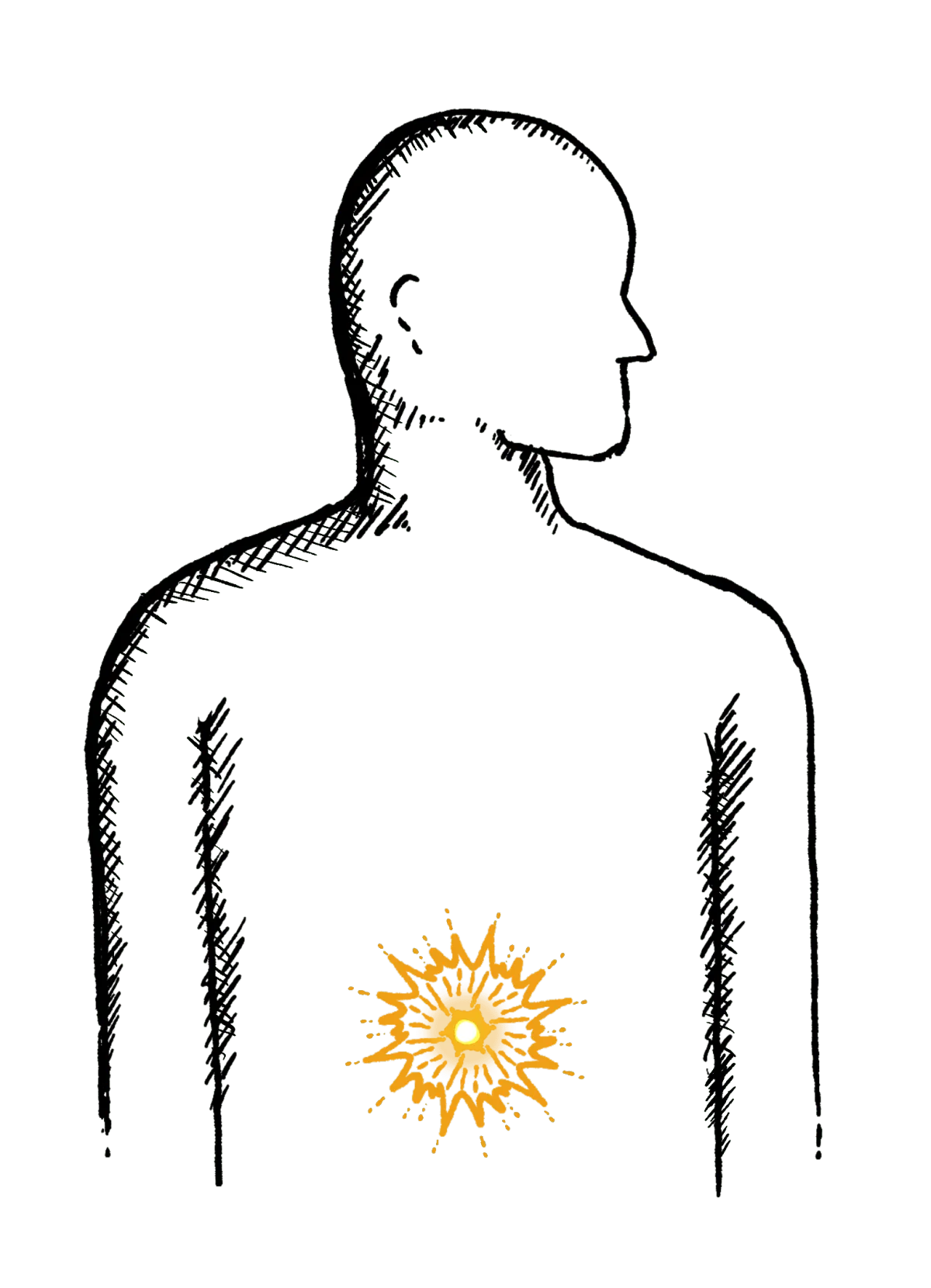
Abdominal pain or cramping, bloating, changes in bowel habits and urgency, gas

